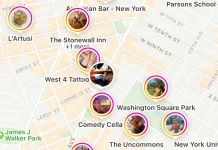Instagram is implementing stricter DM request policies that seek to protect users from unwanted messages flooding their inboxes. The new measures limit senders to a single message if they are not followed by the recipient, requiring the recipient to accept the chat request before further messages can be sent. Moreover, Instagram now restricts DM requests to text only, preventing senders from sharing photos, videos, or voice messages.
Safeguarding Users with Restricted DM Requests
Instagram began testing these new DM restrictions in late June to combat spam and inappropriate content. By limiting senders to a single message, the platform aims to curb the unwanted barrage of messages often experienced by users who do not follow the sender. This measure acts as a protective barrier, preventing spammers and creeps from overwhelming users with unsolicited content.
Moreover, Instagram’s “Hidden Words” tool already hides messages containing objectionable keywords and emoji. With the addition of filters for scams and spam, the platform enhances its efforts to ensure a safer user experience. While these measures might not entirely eliminate spam, they act as a significant step toward reducing unwanted and potentially harmful content.
Prioritizing Safety, Particularly for Women
Instagram’s stricter DM request policies have been particularly lauded as a safety measure for women, who often receive unsolicited and inappropriate content, such as unsolicited nudes, in their DMs. By preventing users from sending photos, videos, or voice messages via DM requests, the platform aims to halt this invasive practice. However, it is worth noting that crude text messages may still persist despite these limitations.
As Instagram’s parent company, Meta faces increasing pressure from politicians and critics to enhance anti-abuse measures, these new restrictions represent a step in the right direction. Efforts to improve safety and combat abuse are essential, especially in protecting younger users. With proposed legislation requiring parental consent for teen social media app usage and laws mandating age verification.
Also read: Instagram to Use Labels for AI-generated Content


























